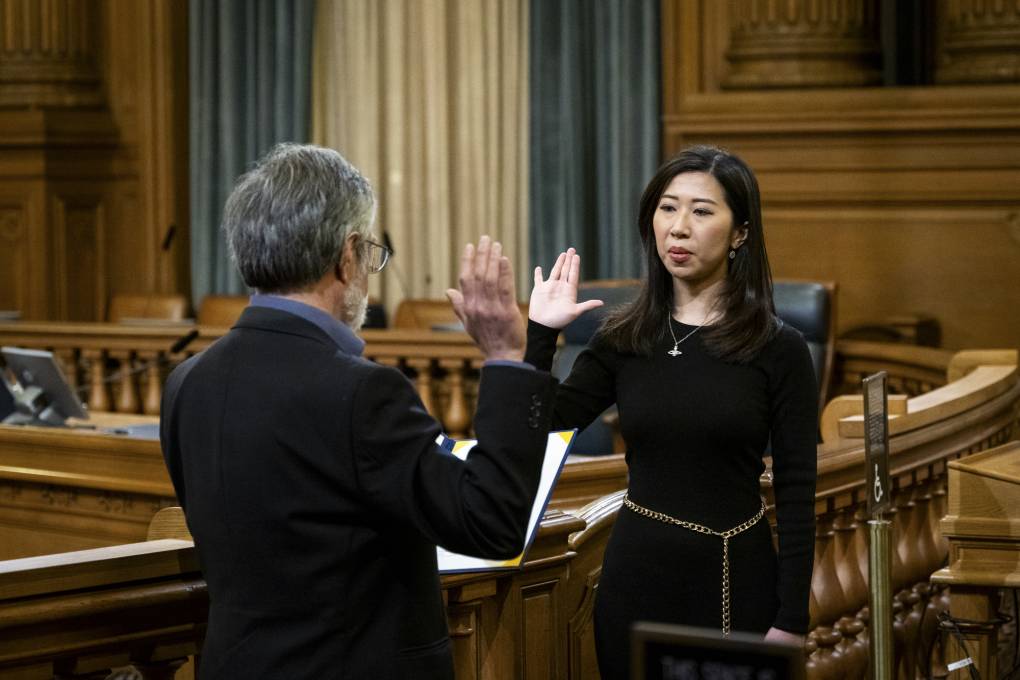Breed is a frequent ally of those groups, and courted them in her State of the City speech last week when she promised to veto any “anti-housing” legislation that crosses her desk.
She followed through on that pledge Thursday, vetoing legislation brought by Peskin to limit dense housing construction in the Jackson Square Historic District, east of Columbus Street. Supervisors can reject the veto with a supermajority of eight votes.
“This ordinance passes off anti-housing policy in the guise of historic protections,” Breed wrote in her veto letter to the board. “Existing rules already protect against impacts to historic resources.”
Peskin countered, in a statement, “Instead of outsourcing housing decisions to developers so they can maximize profit, as the Mayor is doing, we need to build housing our working families can afford while improving the neighborhoods they live in. We don’t have to destroy San Francisco to save it.”
Peskin was first elected to represent North Beach, Chinatown, Fisherman’s Wharf and other nearby neighborhoods in 2000. In recent years, he’s sponsored a flurry of resolutions opposing state legislation that would lead to building market-rate housing more freely in San Francisco:
- 2018: Senate Bill 827 would have incentivized housing construction near transit lines
- 2019: State Assembly Bill 68 would streamline housing approvals near transit
- 2020: Senate Bill 1085 would strip away some local control against awarding incentives for building denser housing
Peskin’s pushback against state regulation doesn’t paint the full picture of Peskin’s housing record. In 2008, as president of the Board of Supervisors, Peskin played a central role in approving the Eastern Neighborhoods Plan, legislation aimed at allowing the construction of 10,000 new housing units in the Mission, South of Market and Central Waterfront.
It’s arguably one of San Francisco’s most transformative rezoning efforts.
Last year, he co-authored Proposition A with Breed, which was approved by voters in the March primary. That measure will deliver a $300 million bond toward the construction of affordable housing. It was written in concert with companion legislation Peskin introduced that would defer development impact fees and winnow inclusionary housing requirements on new construction. The deferral is estimated to spur the creation of roughly 8,000 housing units, a boon for San Francisco’s state-mandated goal to build 82,000 housing units by 2031.




